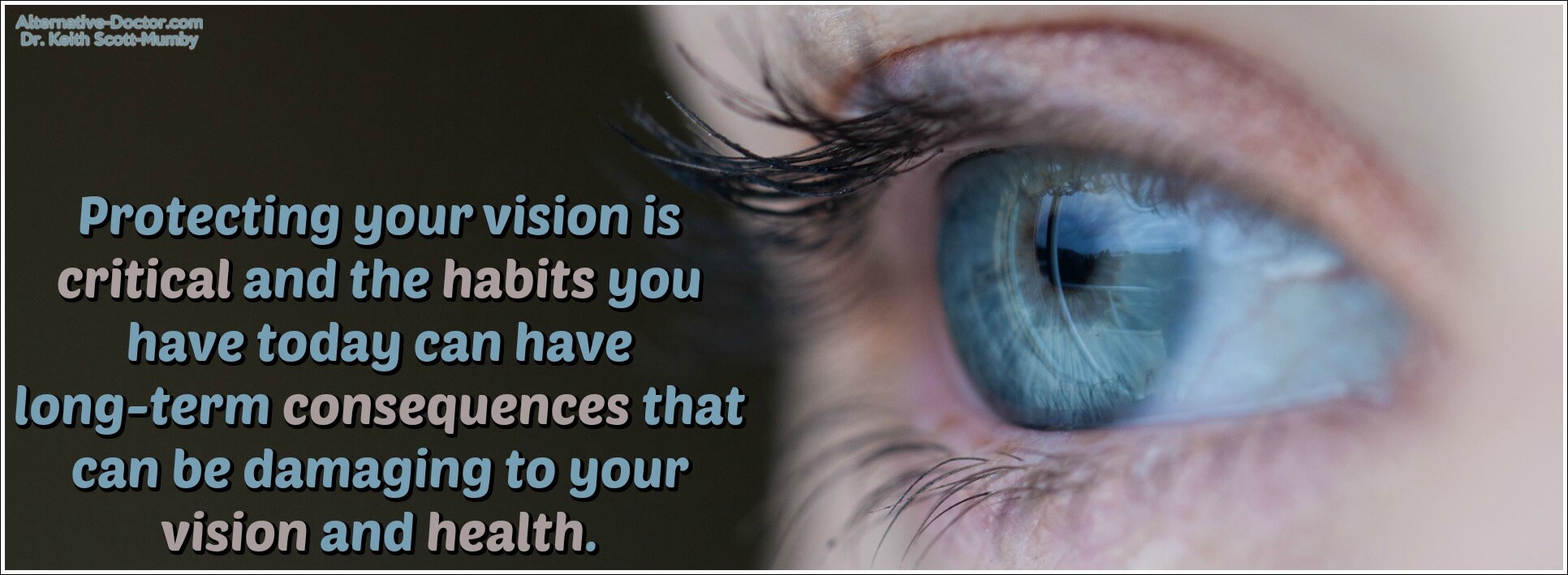The two most important vitamins for eyes are lutein and zeaxanthin. Your body doesn’t produce either of them. You can only get them through your diet.
Protecting your vision is critical and the missteps you make (or the habits you have) today can have long-term consequences in the form of age-related macular degeneration (AMD) or cataracts. Approximately 25 million people suffer from these conditions and estimates are expected to more than triple in less than a decade.
At the end of this article, I’ll list some best practices to keep your vision as long as possible.
Best Food Sources for Lutein and Zeaxanthin
- Dark leafy greens like kale, spinach, Swiss chard, collard greens, or turnip greens
- Eggs (specifically the yolks)
- Tomatoes (even canned or in the form of juice)
- Fresh herbs such as basil
- Romaine or arugula
- Different varieties of summer squash
- Cruciferous vegetables such as Brussels sprouts, broccoli, cabbage, or cauliflower
- Asparagus or carrots
- Leeks and peppers (red and yellow)
- Green peas, sweet corn, and snap beans
- Oranges, melons, peaches, papaya, or grapes
The American Optometric Association had this to say, “Of the 600 carotenoids found in nature, only these two are deposited in high quantities in the retina (macula) of the eye.”
Leafy greens are the number one contender for these crucial eye vitamins, which is why so many people are deficient in them. The majority of the population simply doesn’t consume enough of these healthy foods! As our diet has steadily worsened, so have major vision problems.
Fortunately, these two vitamins are also beneficial as daily supplements. The National Eye Institute determined that supplementation of these critical vitamins for the eyes improved overall vision in patients with AMD and cataracts as well as people with healthy vision.
That means it’s never too late (or too early) to add these carotenoids to your daily regimen through food or supplements!

Powerful Compounds with Incredible Benefits
Lutein protects your retina against sun damage. A new discovery is its protection against blue light – the type emitted from your phone, tablet, television, and computer screens. It’s also been shown to reduce eye fatigue and strengthen eye tissue.
Undoubtedly a fantastic vitamin for your eyes, lutein has also gained notice because of its ability to reduce arterial fatty deposits (atherosclerosis), a root cause of heart attacks.
Zeaxanthin protects the retina from damaging byproducts created during biochemical reactions occurring constantly in your body.
The journal Optometry published the results of a study focused on patients who had difficulty driving at night. Supplementation of zeaxanthin boosted their vision overall by 1.5 lines and improved night driving.
Both fight the ravaging effects of free radicals that slowly break down your cells and increase your risk of disease. These are a byproduct of oxidation that happens every second in your body.
Participants with previously diagnosed age-related macular degeneration supplemented daily with lutein and zeaxanthin. Those involved in the study experienced a slower progression of AMD between 10-25% over those who weren’t supplementing. The highest benefit was reported by those who took the supplements but consumed the lowest quantities through diet.
Additional diseases being evaluated are diabetes, skin conditions, and cancer but it will likely be several years before enough data is released to determine overall effectiveness of supplementation.
Excess lutein or zeaxanthin in any quantity isn’t considered toxic. There may be a mild “yellowing” of the skin (not to be confused with jaundice) with extreme amounts but the condition is harmless and disappears once supplementation is reduced.
These healthy eye vitamins are naturally anti-inflammatory, easily transported throughout the body, and effectively utilized.
Best Practices to Preserve Vision
- Eye exams every two years at least.
- Always wear sunglasses outside and safety glasses while working with tools.
- Quit smoking now and drink alcohol in moderation.
- Get at least 15 minutes of exercise daily.
- Pay attention to changes in your vision.
- Keep your tech screens as dim as possible – especially at night.
- Give your body the right nutrition and hydration.
- Sleep 8 hours every night.
- Follow instructions for wear and cleaning of contact lenses.
One final tip, if you work long hours on the computer or binge-watch television occasionally, make sure you frequently glance away from your screen for at least 30 seconds. Get up, move around, and stretch as well to get your blood flowing.
Following these best practices and giving your eyes the vitamins they need will lower your risk of age-related macular degeneration, cataracts, general vision loss, and night blindness.
There are certain vitamins I take myself every day to fight the signs and symptoms of aging. Read about those here.
